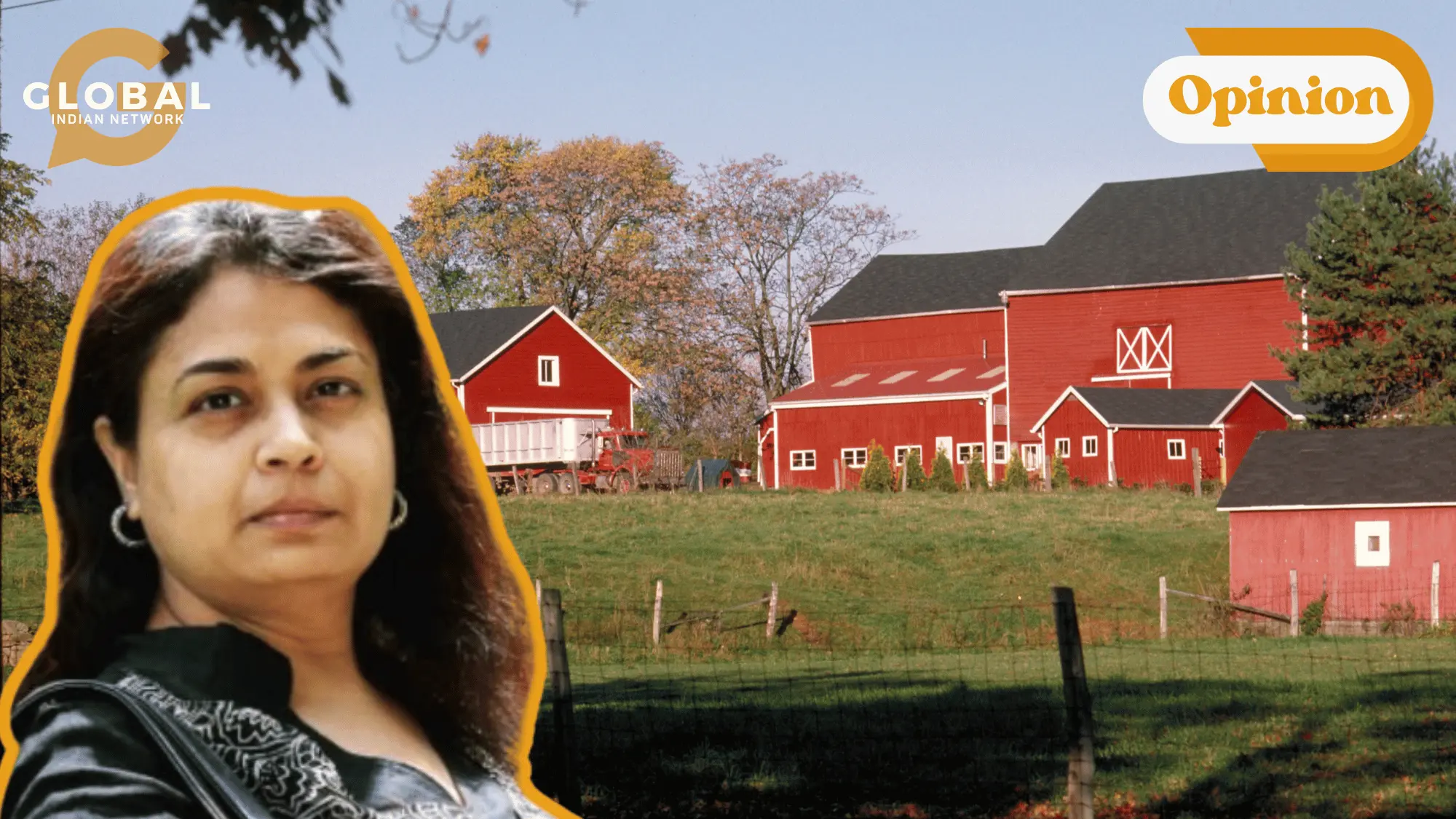India is a predominantly agricultural nation. As per FAO – Food and Agricultural Organization, headquartered in Rome, Italy - agriculture employed 59% of the workforce in 2016.
Ironically, India is predicted to face food insecurity in the coming years. See the image below. The reasons for the impending food insecurity are shown.
Each of the reasons mentioned in the above image has its own independent solution. Yet, what if there is a magic-wand single solution to all the problems?
That could lead to sustainable living, thus preserving the Earth for future generations to enjoy. In the foreseeable future, it is traditional farming (and its modern variations) that will continue to be the source of our food, unless lab-made food becomes the norm. So why don’t we do farming the right way?
Enough research and study have been going on in this field. It is now established that there are certain Sustainable Agricultural Practices – SAP - that can increase yield while preserving the fertility of the soil. A thriving ecosystem can be created where man is in tune with nature. The image below illustrates the idea.
We have to look into the issues faced by the farmers in India before we start implementing the solutions. See the image below.
You would notice that some of the issues have to be tackled at the government policy level, while others are the onus of farmers. Does that mean that the general public should remain a silent spectator?
Not at all.
Everyone can put in their might. In fact, everyone should. It is for the good of all.
Magic Wand Solution
An issue that affects the entire population cannot be solved with the efforts of a handful. So let us get our act together.
The suggestion is to prepare the next generation since they are going to be the set of leaders.
For that, let us flip our education system on its head.
Allow me to present the concept of farm school (not school farm). A school farm is an extension of a regular school where academics are the single most important priority, at least for most schools. Even though I am calling it a magic wand solution, the results are not to be expected as soon as we finish saying ‘abracadabra’.
A farm school, on the other hand, is a learning premise where students as young as 5 and 6 are initiated into gardening and farming. Which child does not like to play with soil? Therefore, it will be ‘fun learning’ for them.
Our regular schools teach science, mathematics, languages, art, and other subjects. What if the teaching of these subjects revolves around the main subject, ‘farming’? This means everything is explained to them with real-life examples. Definitely, the curriculum has to be revamped. This is the task that well-intentioned and visionary adults have to take up.
Children learn better when they are more actively involved than while sitting for hours in a classroom. They like to be outdoors. Depending on the weather, the curriculum can be structured.
The concept of school farms in the world
Farm school is not a new idea. There are many examples of successful farm schools around the world, such as the Farm School in Massachusetts, USA; the Green School in Bali, Indonesia; the Walden Project in Vermont, USA; and the Agroecology School in Brazil. These schools have different approaches and methods, but they all share the same vision: to educate students for a sustainable future.
Curriculum of school farms
Introducing a curriculum that focuses on farming as the main subject is an innovative way to teach students about science, mathematics, marketing, and finance. By connecting these subjects to real-world applications in agriculture, students can gain a deeper understanding of the importance of these subjects and how they relate to their daily lives.
The curriculum can be designed to integrate various scientific concepts such as plant biology, soil science, ecology, and climate change. Mathematics can be taught through practical applications such as calculating seed rates, fertilizers, and irrigation requirements. Teaching finance involves educating students on comprehending the financial aspects of agriculture, encompassing budgeting, pricing, marketing, and the correlation between costs and returns in farming.
The farming-focused curriculum can be designed to include hands-on activities such as cultivating crops, raising livestock, and managing farm operations. These activities can provide students with practical experience applying scientific and mathematical concepts in a real-world setting.
In addition to academic learning, the curriculum can also promote important life skills such as problem-solving, critical thinking, teamwork, and leadership. Students can learn the importance of collaboration and communication in achieving common goals, essential skills for success in any field.
By integrating farming as the main subject in the curriculum, students can gain a holistic understanding of science, mathematics, and finance while also promoting sustainable agriculture practices and food security. This approach can also help foster a deeper appreciation for nature and the environment, which is essential for building a sustainable future for generations to come.
What is the purpose of having school farms?
The purpose of having school farms is to provide students with hands-on learning experiences that promote agricultural education, environmental sustainability, and healthy eating habits. School farms can serve as outdoor classrooms where students can learn about plant and animal biology, soil science, and sustainable farming practices. By participating in farm activities such as planting, harvesting, and caring for animals, students can gain practical knowledge and skills that are directly applicable to their lives.
In addition to promoting agricultural education, school farms can also promote environmental sustainability by teaching students about the importance of conservation, biodiversity, and ecosystem services. Students can learn about sustainable farming practices such as composting, crop rotation, and integrated pest management, which can help reduce the environmental impact of agriculture.
School farms can also promote healthy eating habits by providing students with fresh, locally-grown produce that is incorporated into school meals and snacks. By promoting healthy eating habits and supporting local food systems, school farms can help improve the nutritional quality of school meals and support the local economy.
Another positive result of providing farming education to students is the likelihood of food waste being reduced. This is critical when you understand the current food waste statistics shown in the image below.
I
(Food that we lose and waste could feed 1.26 billion hungry people every year. In all, an estimated 3.1 billion people do not have access to a healthy diet. - FAO Report, 2022)
Overall, the purpose of having school farms is to provide students with a holistic understanding of agriculture, the environment, and food systems while also promoting important life skills such as teamwork, problem-solving, and leadership development.
Specific benefits of a farm school for students in India
Specific Advantages:
1. Smaller Class Size: Farm schools offer more personalized attention for better learning.
2. Close-Knit Community: A supportive atmosphere fosters strong student-faculty relationships.
3. Real-World Experience: Opportunities like internships prepare students for agricultural careers.
In summary, farm schools prepare students for success in agriculture and beyond, making them valuable contributors to the field and their communities.
Conclusion
We Indians should acknowledge and respect our farmer’s efforts and struggles. We cannot allow our fellow beings to commit suicide in droves, as has been the trend for some decades.
Let us celebrate the next Kisan Diwas - National Farmer’s Day (23rd December) with gung ho. The day marks the birth anniversary of the "Champion of Indian Peasants", former Prime Minister Chaudhary Charan Singh.
"If agriculture goes wrong, nothing else will have a chance to go right in the country." - M. S. Swaminathan (1925–2023)
He was the architect of India’s green revolution. He was an agronomist, administrator, agricultural scientist, plant geneticist, and humanitarian. He introduced radio sensitivity, ionizing radiation, and cytogenetics in the production of crops like wheat, rice, and potatoes. He received numerous awards, which include the Shanti Swarup Bhatnagar Award, the Ramon Magsaysay Award, and the Albert Einstein World Science Award. TIME magazine has identified him as one of the twenty most influential Asians of the twentieth century.
Along with God, let us not forget to say grace to the farmers before our meals.
At the end of this piece, have you decided to support the right kind of farming?
Once again, do you wish to be part of the solution or part of the problem?
Let us know what you think in the comment section below. If you want us to publish your opinion piece, mail it to us at larra@globalindiannetwork.com











Nice concept, one that could be implemented realistically..
Good read.
Good article on the rather neglected large sector of economy in Bharat. Farm school is a good idea. Stress should be given to actual field-work. Problems on this are manifold. Non-availability of land, implements, experienced teachers, lack of farm animals and so on. Organizing these may be given due attention.